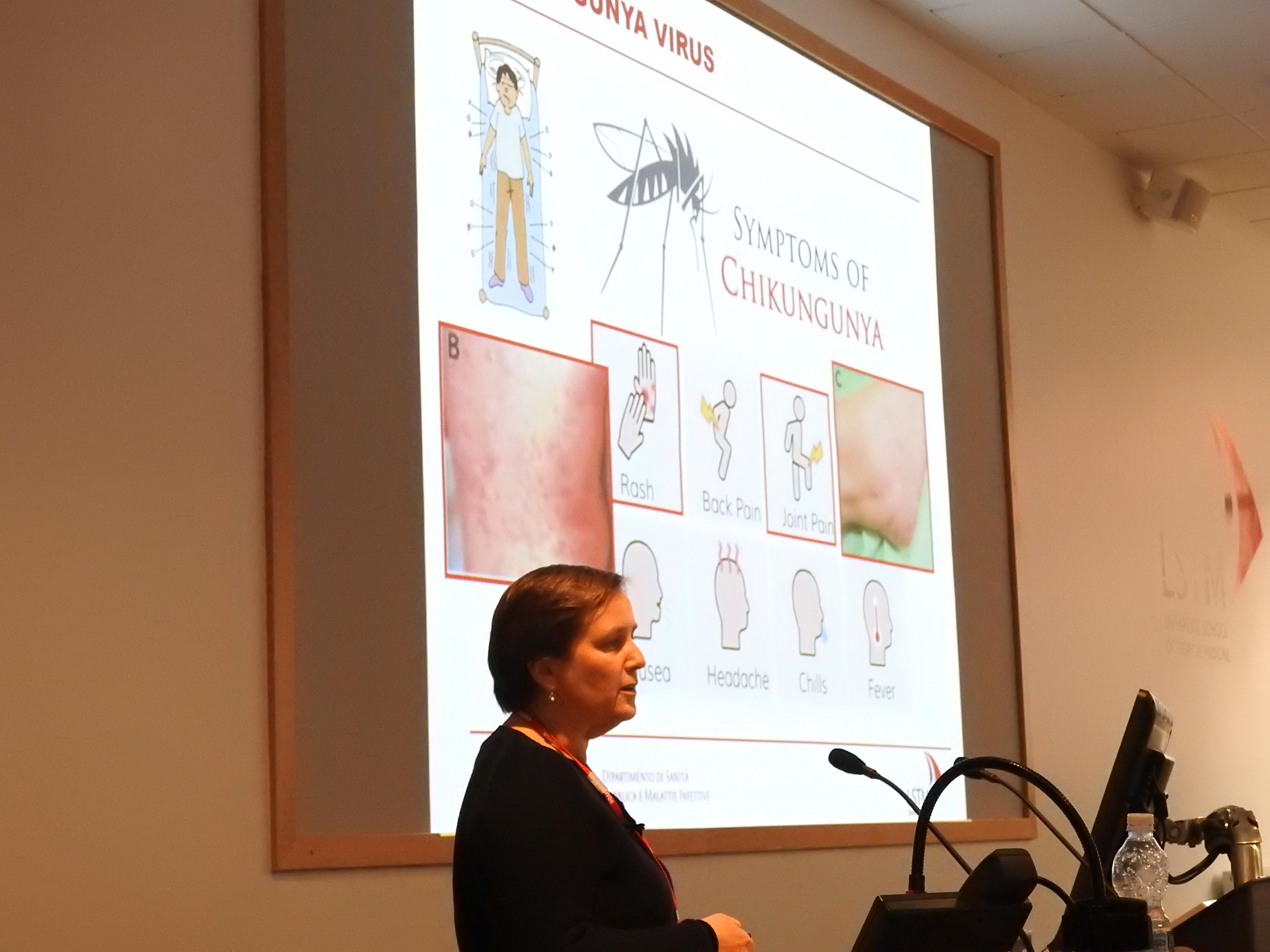
Dr Alessandra della Torre,
Associate Professor of Parasitology, Department of Public Health and Infectious Diseases, University of Rome, Italy.
Rome and Lazio region in central Italy were invaded by Aedes albopictus about 20 years ago. Since then the species has stably colonized the region and has become a major nuisance to the citizen. In 2017, a large outbreak of Chikungunya virus occurred in the region, with almost 400 cases, 6% of which required hospitalisation. In the seminar, I summarize 20 years of researches of the group of Medical Entomology of Sapienza University in Rome on the biology of the tiger mosquito after its adaptation to the ecological situation of Rome and surrounding areas. I also describe the 2017 outbreak and present the results of a transmission dynamics model informed with data on mosquito abundance and biting rate on humans from previous collections in Lazio region, as well as results of a modelling effort carried out to provide a quantitative characterisation of the outbreak using available epidemiological data.
Dr Alessandra della Torre is Associate Professor of Parasitology at the Department of Public Health and Infectious Diseases in Sapienza University of Rome, Italy, where she leads the Medical Entomology group.
The group’s research is mostly focused on:
i) malaria vectors, with particular reference to population genetics, genomics and ecology of the main Afro-tropical vector species, Anopheles gambiae and An. coluzzii;
ii) Aedes albopictus, with particular reference to epidemiologically relevant aspects of its biology in Italy, as well on the development/optimization of new/traditional control approaches; iii) development of novel approaches to monitor mosquito species vector of human disease.
The group is/was funded by EU, NIH, WHO, Institut Pasteur France, Institut Pasteur Italy, Italian Ministry of Research, Italian Ministry of Defence Sapienza University.